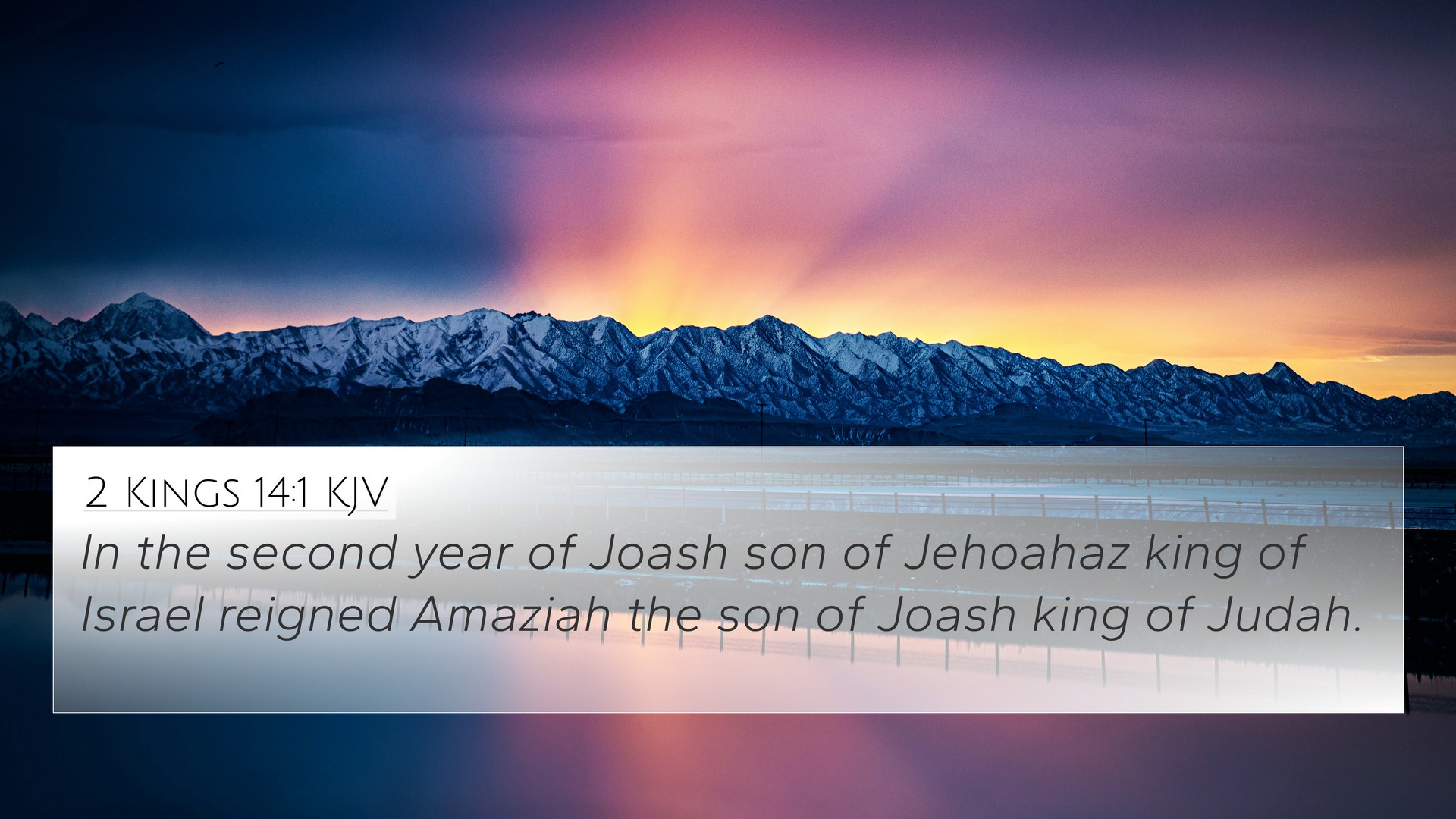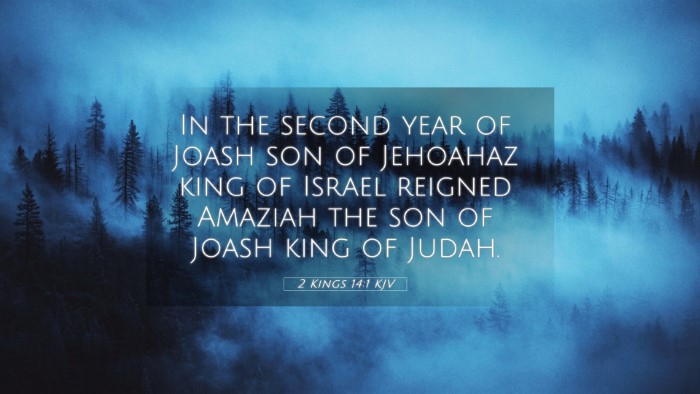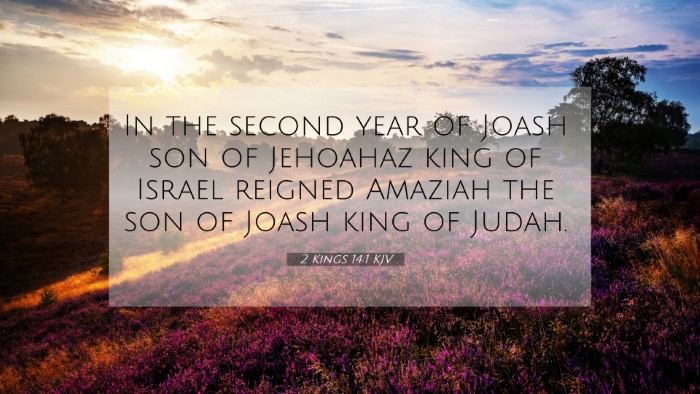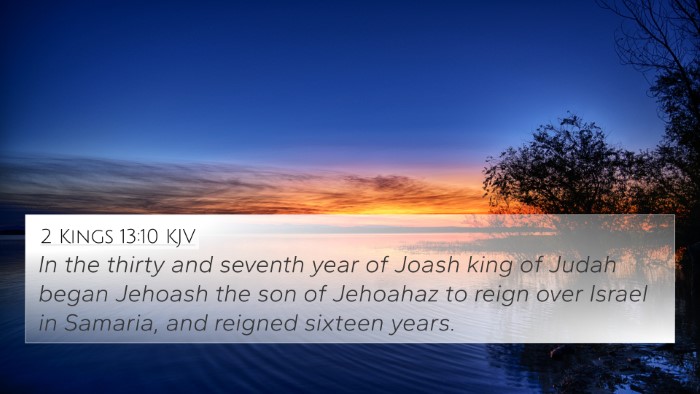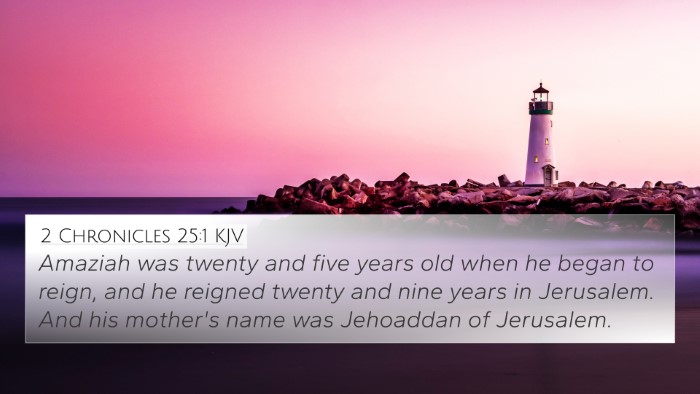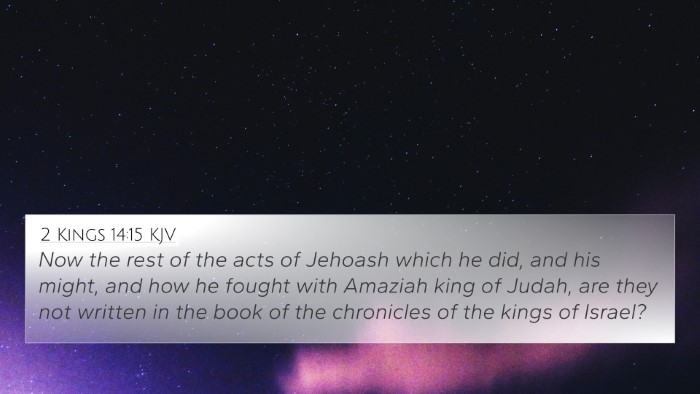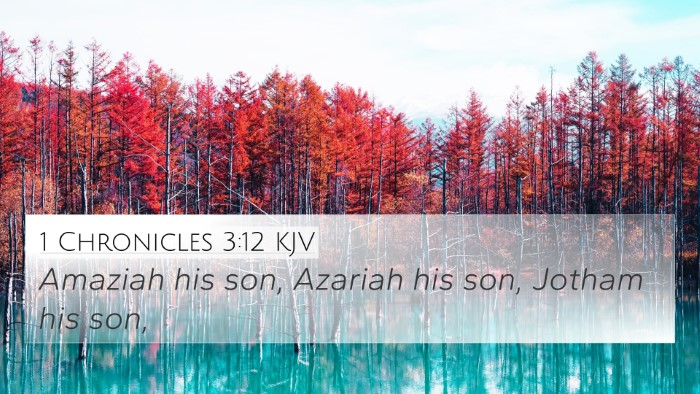Understanding 2 Kings 14:1
Bible Verse: "In the second year of Joash son of Jehoahaz king of Israel, Amaziah son of Joash king of Judah began to reign."
This verse marks the initiation of King Amaziah’s reign over Judah, occurring during the second year of the reign of King Joash of Israel. This historical context is vital for understanding the political and spiritual climate of the time.
Historical Context
The verses surrounding 2 Kings 14:1 provide insight into the historical and political backdrop of the ancient kingdoms of Israel and Judah. The reign of Amaziah is significant as he is depicted as a leader who both continued and challenged the legacy of his father, Joash. Understanding this period invites comparisons and thematic discussions that are prevalent throughout the Bible.
Key Themes in 2 Kings 14:1
- Royal Lineage: Amaziah's lineage connects him to the house of David, emphasizing God's covenant with David.
- Temporal Authority: The power struggles between the northern kingdom of Israel and the southern kingdom of Judah drive much of the narrative in 2 Kings.
- Theological Implications: The verse encourages a deeper exploration into God's sovereignty over nations, reflected in His choice of kings.
Commentary Insights
Matthew Henry's Commentary
Matthew Henry emphasizes the timing of Amaziah's reign in relation to Joash of Israel, suggesting that the political landscape was one of conflict and calamity. He highlights how Amaziah's rise to power signifies both a challenge and a continuation of the faithfulness to God seen in his father's leadership. Henry stresses the importance of evaluating rulers based on their adherence to God's commandments.
Albert Barnes' Commentary
Albert Barnes focuses on the ramifications of Amaziah's reign on both political and spiritual levels. He posits that the dual kingdom situation creates tensions that reverberate throughout the entire nation of Israel. Barnes notes the overarching theme of God's authority amid Israel's turmoil and the need for leaders to turn toward divine guidance.
Adam Clarke's Commentary
Adam Clarke explores the context of Amaziah's ascendancy, linking it to previous kings, and highlighting the impact on both Judah and Israel. Clarke indicates the prophetic elements within the text, suggesting that the timing of kings illustrates God's overarching plan. He also emphasizes the moral and ethical responsibilities of rulers as spoken throughout the Scriptures.
Cross-References and Thematic Connections
In studying 2 Kings 14:1, several other scripture passages illustrate its themes and provide deeper insights:
- 2 Samuel 7:12-13: God's promise to David regarding his descendants.
- 2 Kings 11:21: Joash's rise and the surrounding political instability in Judah.
- 2 Chronicles 25: The account of Amaziah's reign further expounds on his actions and legacy.
- Isaiah 1:1: The prophetic background and introduction to kings during the era of Amaziah.
- Jeremiah 22:1-5: God's expectations of the kings of Judah, referencing their responsibilities.
- Amos 7:10-13: A prophetic perspective during the reigns of the kings of Israel.
- Hosea 1:1: Prophetically contextualizes the period and kings of Israel, highlighting divine intervention.
- Matthew 1:12: The lineage of Christ, linking back to Judah's kings.
- Luke 3:33: Another genealogical reference which connects to the Davidic line.
- Revelation 3:21: A comparison with Christ's authority as the ultimate king.
Applying the Insights
When considering 2 Kings 14:1 and its implications for believers today, this passage offers a rich tapestry of themes surrounding leadership, divine authority, and covenant faithfulness. By connecting this verse with others, faithful readers can gain insight into God's will regarding human governance and our responsibilities as followers of Christ.
Through the use of tools for Bible cross-referencing, such as concordances and comprehensive study guides, individuals can explore these connections more deeply. This creates a framework for understanding the links between the Old and New Testaments, and how these themes resonate through time.
Conclusion
2 Kings 14:1 is a multifaceted verse that, when illuminated through various commentaries and cross-referenced with related scriptures, reveals the complexities of biblical history and theology. Alongside studying this verse, readers are encouraged to explore the many connections between other passages for a fuller understanding of biblical narratives.
